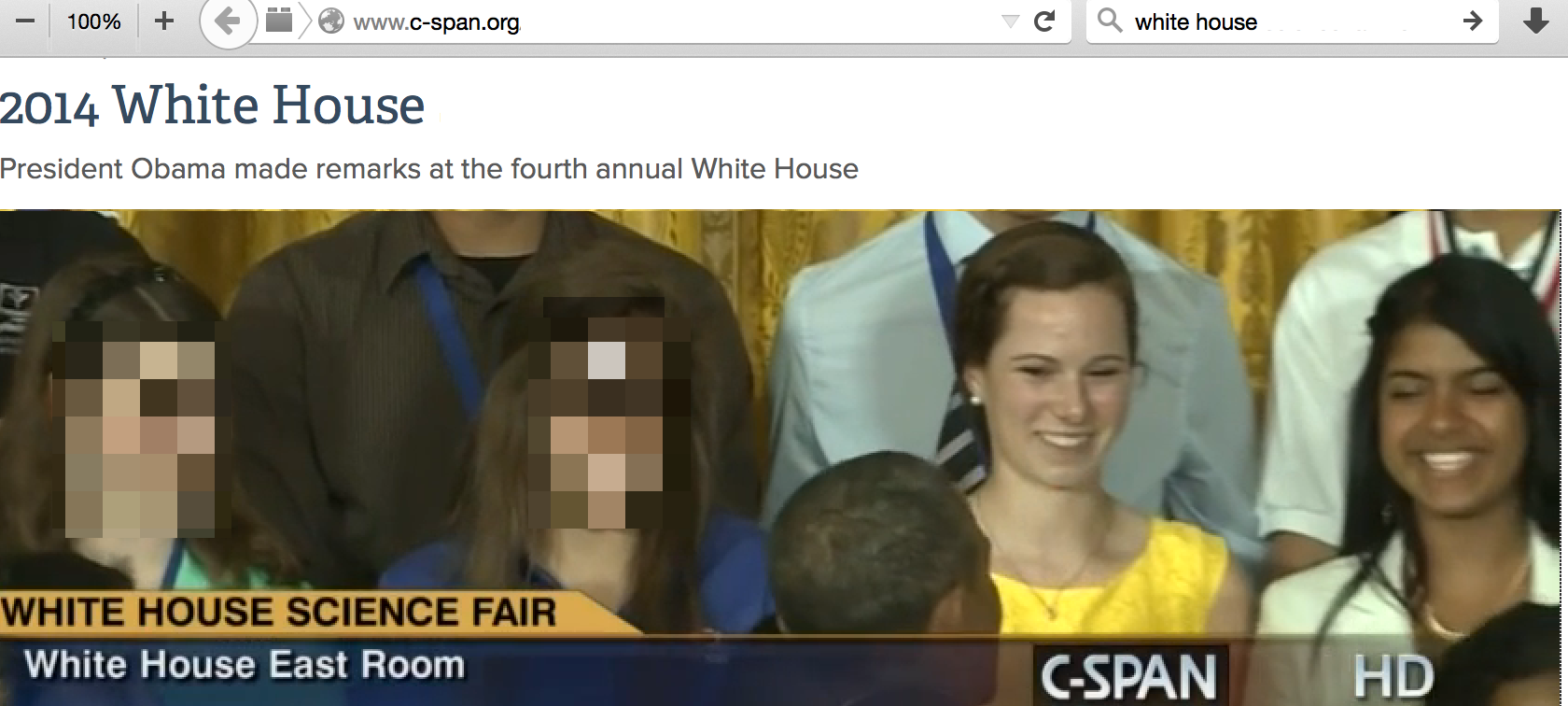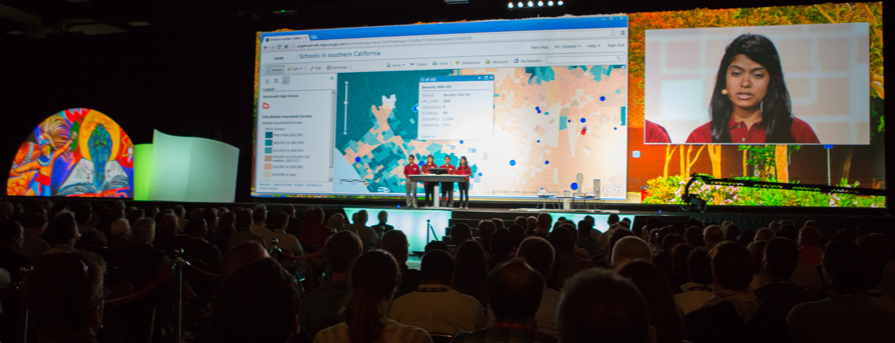- Home
- :
- All Communities
- :
- Industries
- :
- Education
- :
- Education Blog
- :
- Fun with GIS 267: From Watts to Washington
Fun with GIS 267: From Watts to Washington
- Subscribe to RSS Feed
- Mark as New
- Mark as Read
- Bookmark
- Subscribe
- Printer Friendly Page
- Report Inappropriate Content
Facing uncertainty, would we know to grab opportunity? When she was in eighth grade, Roxana Ayala had no idea that her choice of high school would lead her to the White House before high school graduation, and a job in Washington DC after college. The hour-each-way between her home in Watts and her school in the Boyle Heights neighborhood of Los Angeles helped her perceive and appreciate nuances between communities. Her teachers at the Math, Science, and Technology Magnet Academy of Roosevelt High School offered challenges, expectations, and encouragement that helped develop skills and attitudes that opened up more opportunities. And, time after time, Ayala stepped up.
She was in the first cohort of MSTMA students introduced to GIS as part of their 11th grade research project. Two teachers led 90 students into deep research on the community, with GIS illuminating patterns and relationships. In just a few weeks, on just a few computers, they presented work impressive enough to earn a place on stage at the 2013 Esri Conference. Ayala was the lead-off speaker.
Click image to watch the presentation at Esri 2013 User Conference; start at 7:00
A year later, Esri President Jack Dangermond decided to join President Obama's ConnectED Initiative and give software to any school in the US that asked. Esri needed two accomplished students to represent the dream. Ayala and a student from Arlington, VA, prepared for uncertainty, stood on the risers under the blazing lights behind the President, and shook hands with him at the close. "I can still describe it like it was yesterday, it's an experience that's impossible to forget," she mused.

What do you do with dreams, skills, and passions for trees, justice, equity, and action, but no blazed trail? Go to college and be on the lookout for opportunity. Ayala headed to University of California Irvine and focused on conservation, working with the US Forest Service, state parks, and private institutions on restoration projects across the country. But, nearing her diploma and finding herself cleaning and labeling old plants to digitize a collection, it wasn't enough. She sought more, the chance to be interdisciplinary, to boost equity, to make an impact for people. A conversation led her to investigate a fellowship, which led to a job, in Washington DC.
The American Council for an Energy-Efficient Economy sought someone to help them conduct research and outreach on energy efficient policies and programs that target historically marginalized populations, which include but are not limited to low income communities and communities of color. "There's an analysis of 'energy burden' among 25 metro cities in the US underway. A household needing to spend more than 6% of their household income on energy costs are experiencing high energy burdens, and generally low-income and communities of color often experience higher energy burden than any other households," Ayala noted during our interview, from her apartment, right as Coronavirus-related shutdowns had swept across the country. "Now, with the pandemic, and so many people out of work, fortunately, many utilities have placed moratoriums on disconnections, but a big concern once it ends is that many households may experience significant challenges to pay off their bills which may ultimately put them at risk of service disconnections."
Did she feel prepared for this job? Ayala chuckled. "I was used to being out in the field for hours a day. I'm picking up the policy part on the job, learning the acronyms and policies. It's been almost a year and I feel like I'm just scratching the surface. There's a lot of learning, a lot of reading. But, off work, I find myself critically thinking of these issues as they relate to energy. I don't get to do GIS as part of my work right now, but it's definitely there in how I look at things."
So, what about high school -- did using GIS and doing the research project prepare you for this? "Absolutely. Doing complex, meaningful research at a young age, building perspectives, looking at data, integrating disciplines, doing presentations, it all empowered me, made college feel easier. And GIS … having a skill that employers are looking for … employers are impressed when I say I've been using GIS since high school. Having these opportunities definitely affected my trajectory, helped me get where I am right now. I love the work I do … I'll keep doing things related to environmental justice, specifically work that seeks to create equitable, low-carbon cities … making a difference … just like my teachers, Ms.Ramirez and Ms.Im, who planted the seeds for radical change and are still wonderful mentors."
From Watts to Washington is a substantial journey. Would that every student could have teachers so willing to help students get started in the right direction.
You must be a registered user to add a comment. If you've already registered, sign in. Otherwise, register and sign in.
-
Administration
38 -
Announcements
44 -
Career & Tech Ed
1 -
Curriculum-Learning Resources
178 -
Education Facilities
24 -
Events
47 -
GeoInquiries
1 -
Higher Education
518 -
Informal Education
265 -
Licensing Best Practices
46 -
National Geographic MapMaker
10 -
Pedagogy and Education Theory
187 -
Schools (K - 12)
282 -
Schools (K-12)
184 -
Spatial data
24 -
STEM
3 -
Students - Higher Education
231 -
Students - K-12 Schools
85 -
Success Stories
22 -
TeacherDesk
1 -
Tech Tips
83
- « Previous
- Next »
